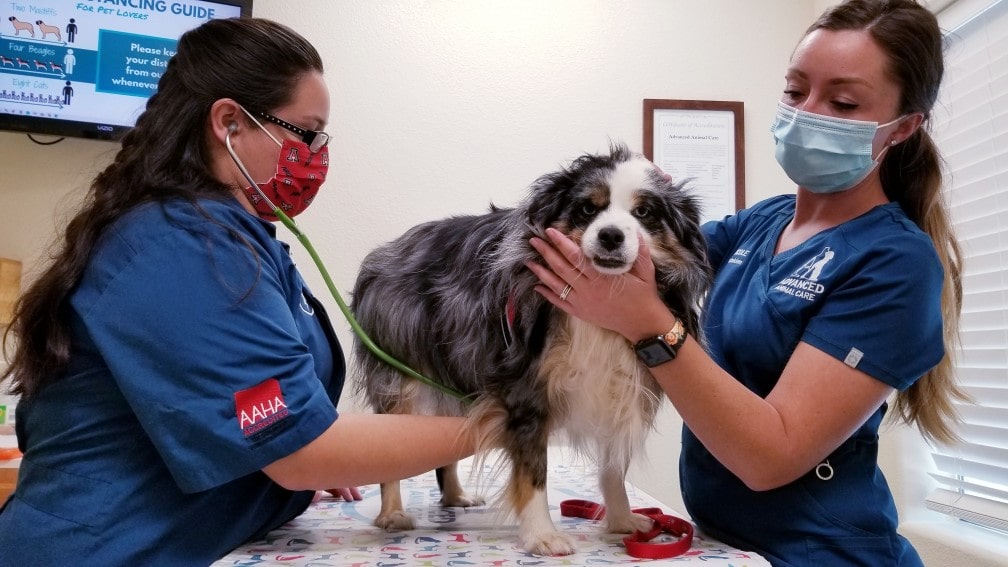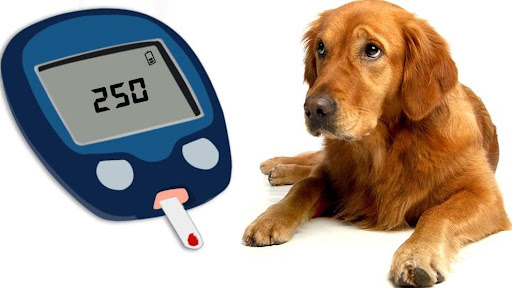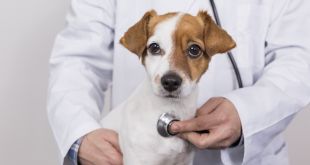Are you recently noticing episodes of coughing, wheezing, and breathing problems in your dog? Then, it is time to ascertain whether your dog is suffering from canine bronchitis. Bronchitis causes dry cough in dogs and usually affects dogs in their mid-age.
When dogs get exposed to certain irritants like dust, air pollutants, mold, or smoke or have a weak immune system and bacterial infection, these could trigger bronchitis. And to counter this non-threatening illness, you need to be proactive in identifying the symptoms and implementing the remedies to cure the disease.
What is canine bronchitis?
Bronchitis is a disease characterized by inflammation in the bronchi and bronchioles. These are the parts of the lungs through which oxygen-rich air travels. Inflammation in these airways leads to the production of mucus, irritation, and cough. This entire process stimulates the production of more mucus and leads to a cycle of constant inflammation.
Two types of canine bronchitis:
Acute bronchitis
Acute bronchitis is a temporal inflammation of the bronchial airways. It results from viral or bacterial infection. Dogs contract acute bronchitis when they come in contact with other infected canines.
Chronic bronchitis
Chronic bronchitis is a long-term irreversible respiratory disease. This type of bronchitis leads to mucus production and affects the lower airways of the dog’s lungs. If you allow acute bronchitis to thrive more, it increases the chances of chronic bronchitis.
Are acute bronchitis and chronic bronchitis contagious?
Acute bronchitis and chronic bronchitis are neither zoonotic nor contagious. It means you, your family, and the canines do not run the risk of contracting this disease. Although the disease travels from one dog to another, it will not settle in your dog’s respiratory system.
Symptoms of bronchitis in dogs:
Bronchitis in dogs causes coughing that is wet, dry, or honking. Sometimes, the coughing might seem minor, but it could indicate a severe problem later. If you observe changes in the cough characteristics, if it gets more frequent, wetter or dryer, louder or softer, it is time to take your dog to a vet.
Additional symptoms of bronchitis in dogs may include the following-
- Gagging
- wheezing
- Foamy saliva after coughing
- Bluish mucus membranes
- Shortness of breath
- Fainting
- Producing sputum, which is a mixture of saliva and mucus while coughing
- More production of mucus due to inflammation in the airways
- Frenetic attempts to inhale
If you reduce the leash time, it will reduce the symptoms of bronchitis as cough tends to intensify when they pull on the leash.
Causes of bronchitis in dogs:
Different factors contribute to the cause of bronchitis in dogs. Cigarette smoke, dust mold, household chemicals, and air pollutants are identified as the culprits causing canine bronchitis.
Other factors include parasites like heartworm and lungworm, cancer, pneumonia, heart failure, fungal lung infection, bacterial or viral tracheobronchitis, or tracheal collapse could also be the reasons for causing bronchitis in dogs.
However, the real cause of this disorder is the inflammatory cycle that gets instigated and perpetuated by the reactivity of the dog’s respiratory passages.
Remedies to cure bronchitis in dogs:
Following are some of the best holistic natural approaches to relieve the symptoms of canine bronchitis and other associated respiratory issues such as kennel cough or sinusitis.
Humidifier:
Keeping your home environment and the air fresh and moist is one of the effective ways to prevent the disease. Humidifier soothes chronic cough by keeping the air moist.
The best alternative to a humidifier is to run a hot shower for your dog with the bathroom door closed. The steam generated from the hot water will help clear out the bronchial tubes and prevent the mucus from accumulating in the lungs of the dogs.
Remove the dog collar:
Another good way to help your dog find relief from bronchitis is by removing anything around its neck that may cause pressure or irritation in its throat. It is especially helpful during the night to allow them to sleep peacefully.
Honey:
Honey is not only effective for human beings suffering from colds and coughs but even also benefits dogs. It soothes and moistens the dogs’ throats if included in their diet.
Honey has super-healing and antibacterial properties that benefit the respiratory system and gastrointestinal health. A mixture of honey, warm water, and lemon is all that your dog needs to get relief from coughing and wheezing.
Dandelions:
Besides being a rich source of nutrients for dogs, dandelions are also rich in vitamins and antioxidants. One teaspoon of dried dandelion leaves or the essence of dandelion roots helps keep your dog’s heart healthy and protects against heart disease.
Licorice root:
Licorice root is effective in treating symptoms of upper respiratory infections. It helps in inhibiting inflammation. You may consider using licorice root. Use it as a tincture or cooled tea for your dog.
Effectiveness of Holistic or Natural Treatments
Holistic treatments do not have any side effects. It helps treat the condition and improves the dog’s health. These treatments support the healing process and prove effective in curing acute bronchitis. It is significant to schedule an appointment with the veterinarian to understand the underlying causes of the conditions.
Other remedial measures to cure canine bronchitis:
- Nebulization
- Cough suppressants
- Oral medicines
- Avoid cigarette smoking
- Keep your pet away from diffused essential oils, paint fumes, household cleaners, carpets
- Avoid spraying perfumes in front of your dog
- Your dog must stay in a well-ventilated environment
- Maintain a healthy dog body weight
Wrapping up!
You can identify, treat and very well prevent canine bronchitis before it severely affects your dog’s health and well-being. The immune system of the dog must be healthy. Therefore, do not think twice before visiting a vet specialist if you notice symptoms requiring medical attention.
Natural remedies help you avoid high dosages of medicines. Moreover, no surgery is needed if you use natural treatments. Also, it is important to keep your dog hydrated and its immune system functioning and healthy.

 DogExpress
DogExpress


















 in Chandigarh, India.
in Chandigarh, India. 
